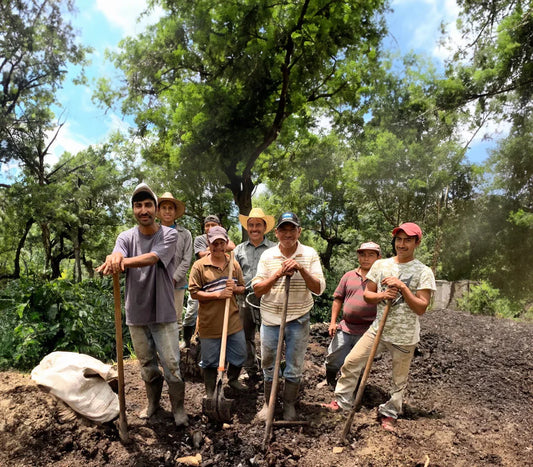
Telenovelas' Unexpected Influence on US Television
A decade before Ugly Betty, we had Yo soy Betty, la fea.
When Ugly Betty was first released in the US, it was an instant hit.
Jump to:
Consisting of 42-minute episodes across five seasons, it followed the character of US-Mexican Betty Suárez as she experienced the ups and downs of her job at a fashion magazine.
However, most people have no idea that the same story had already played out an entire decade before in the Colombian telenovela, Yo soy Betty, la fea.
Telenovelas: An Intrinsic Part of Latino Family Life
For decades, telenovelas have played a popular role in our communities. And rather than being exclusively marketed at women, telenovelas are family programs.
"More than half of Latinos watch them," Dr. Michael Rodriguez, a UCLA primary care physician who works with the Latino community, told PBS. "I remember watching them with my mother. In fact, I still do watch them when my mom is visiting."
Meanwhile, Yolanda Machada, an entertainment journalist, says: "If there had been more shows like Ugly Betty when I was growing up, I wouldn't have felt like an outsider in my own country.
"Before Ugly Betty there had never been a Latino family on TV simply existing – living regular, working-class lives. The Suárez family wasn't stereotypical or caricatured; their Latino-ness wasn't exaggerated. And Betty herself reflected what many children of immigrants could, and can, relate to: living a life between two worlds.
"As a first-generation Latina, I remember watching Betty trying to hold on to her culture as she stepped into a world that told her she didn't belong."

More Viewers Despite Smaller Budgets
Watching telenovelas is often a way of keeping in touch with friends and family, especially those who have moved abroad. It acts as a conversation piece, enabling us to speak with people back home about the latest installments.
They have also had a huge impact on US soap operas over the years. Since the 1980s, the latter have tried to mimic the storytelling style of telenovelas by creating more fast-paced storylines.
But while many long-running US soap operas have seen viewing figures fall (and many have been canceled) telenovelas stay popular. By recent estimates, 5.6 million people across the country tune into telenovelas every week compared to just 2.9 million soap opera viewers.
This is in spite of the fact that US soap operas have traditionally had much larger budgets per episode. Sunset Beach, which aired on NBC from 1997 to 1999, ran on a production budget of approximately $1 million per week (or $200,000 per episode). That's compared to the average of $60,000 per episode for telenovelas.]
A large part of telenovelas' success comes down to their ability to resonate.
"[Telenovelas] are often rich in wit, social relevance, and national cultural style," writes Antonio C. La Pastina of Texas A&M University. 'Class difference is foregrounded in Mexican novelas and Cuban novelas are bitingly topical as well as ideologically correct."

"It's something you grow up doing – it's nostalgia"
Apart from Ugly Betty, which aired in 1999 and later became a worldwide phenomenon (it was broadcasted in more than 180 countries, dubbed into 25 languages and had 28 adaptations worldwide), many other telenovelas have also been remade for audiences around the world.
These include Jane the Virgin, which stars Gina Rodríguez and is based on the Venezuelan telenovela Juana la Virgen, Devious Maids, adapted from the Mexican Ellas son... la alegría del hogar, and I am Frankie, from the Colombian telenovela Yo soy Franky.
All of these shows pay tribute to their roots by combining drama, comedy, melodrama, despair, and social commentary, and the fact that they continue to be adapted shows the role they have to play.
Mary Siddall remembers how she watched the programs growing up. But, she says, "It wasn't only about watching television, but rather the bonding that occurred with my grandmother. Everything would stop at 8 pm. We'd sit to watch the novela while we ate."
The common thread of telenovelas and time spent with family is a recurring one.
"It's nostalgia," Vivian Llodra, who started watching telenovelas with her mom and aunts when she was little, says. "It's something you grow up doing. It brings you warm memories."
And that, according to Diana, is why telenovelas are here to stay: "They have an impact and they are important to the community."
The Future of Telenovelas
This, despite the emergence of streaming platforms.
Guillermo Quesada, a script and content advisor for Televisa, highlights that Televisa’s telenovelas are still the number one content sales worldwide and have been adapted in 130 countries.
Contrary to past predictions of many, Quesada emphasizes that telenovelas are more alive than ever. This resilience is linked to Diana's comment on the importance of the genre to Latin American communities worldwide, and to Vivian's explanation of its nostalgic significance.
We don't know about you, but we sure hope telenovelas aren't going anywhere, anytime soon! After all, where else would the US get its inspirations for new shows?


